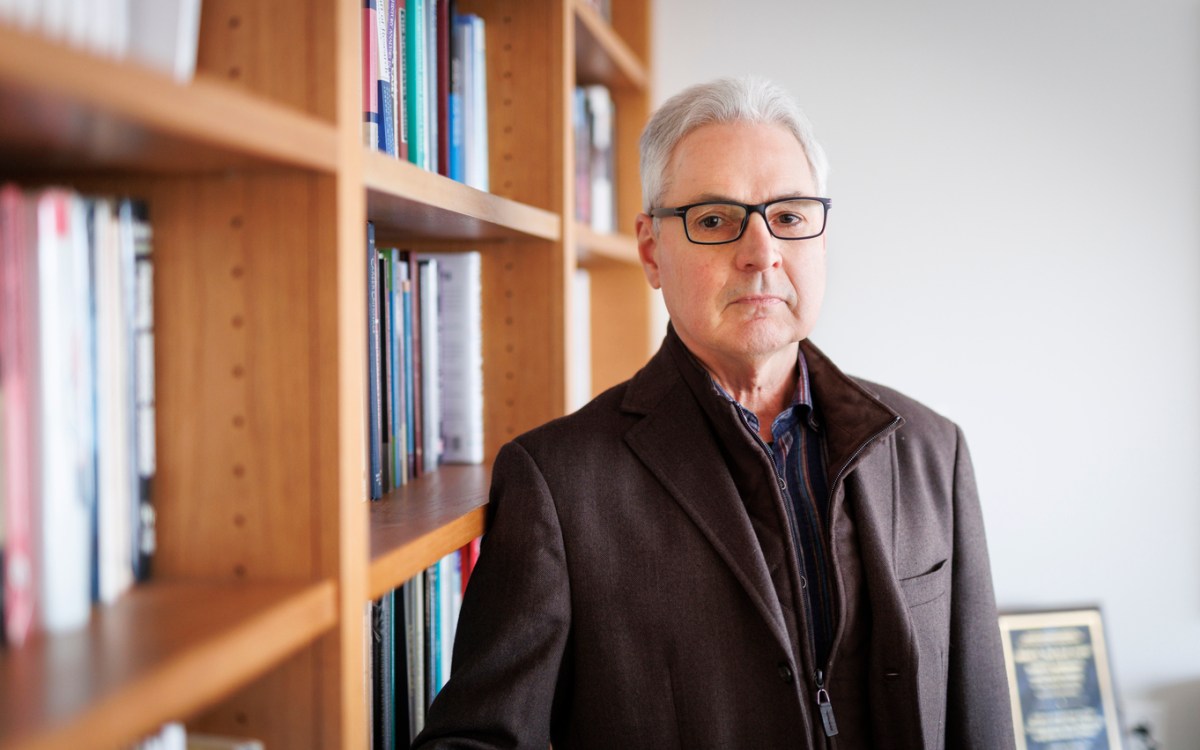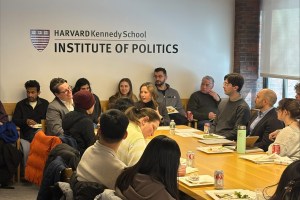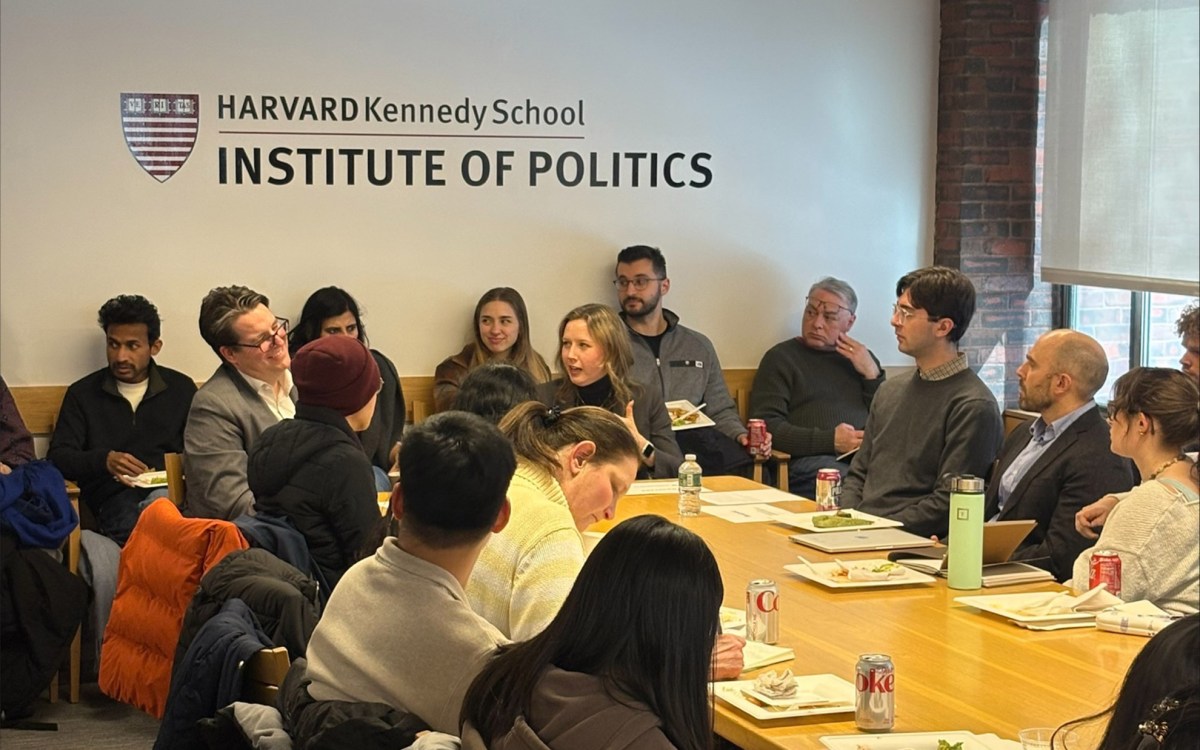Journalism less appreciated, still essential, says NPR’s Daniel Schorr
The public has a much more jaundiced opinion about journalists than the almost heroic image they had during the Watergate era, but society needs the press to do its job just the same, National Public Radio analyst Daniel Schorr said Tuesday (March 13).
“What is clear is that the press can no longer rely on public support in doing its job, but we still have to do the job,” Schorr said. “At crucial points in our history, when rights were threatened, the press was there to defend them.”
Schorr was among several winners of the Joan Shorenstein Center for the Press, Politics and Public Policy’s annual Goldsmith Awards. Schorr, a longtime broadcast journalist who got his start on CBS working with Edward R. Murrow, received the center’s Goldsmith Career Award for Excellence in Journalism.
Other winners Tuesday were Diana Mutz, Gene Roberts, and Hank Klibanoff, who received the two Goldsmith Book Prizes; the Center for Public Integrity, which received a special Goldsmith Award for its investigation into privately sponsored congressional travel; and Charles Forelle, James Bandler, and Mark Maremont of the Wall Street Journal, who won the Goldsmith Prize for Investigative Reporting for a series on corporate stock options abuses.
John F. Kennedy School of Government Dean David Ellwood introduced the event, comparing it to a recent evening that honored the School’s military veterans, saying journalists also play an important role in protecting democracy.
Shorenstein Center director Alex Jones hosted the event, describing in detail the work of award winners and of finalists for the Investigative Reporting Prize. He also introduced Schorr, providing highlights from his long career that included being named on President Richard Nixon’s “enemies” list, narrowly missing imprisonment for refusing to name his source for a controversial report on the CIA and FBI’s Watergate-era activities, and his journey from CBS to the Cable News Network in 1979 and then to National Public Radio, where he’s served as an analyst for more than two decades.
Schorr highlighted the contrast between his own ability to avoid jail for refusing to name a source — albeit narrowly — and New York Times reporter Judith Miller’s 85-day jail stint for refusing to talk about interviews with Vice President Dick Cheney’s aide, Lewis Libby.
In Schorr’s case, he was being pressed by a U.S. House investigation to reveal who leaked the report to him. The committee voted 6-5 against finding him in contempt of Congress after the committee received calls from the public supporting his refusal to name sources.
Today, Schorr said, the public is more sympathetic to government’s desire for secrecy, even with revelations of secret CIA prisons around the world and the long-term detainment at Guantanamo Bay. To be sure, Schorr said, journalism itself has changed. The Internet and its bloggers have joined the scene, and there have been several high profile cases of reporters outright fabricating stories.
Also, he said, mainstream news outlets such as Fox News devote 13 times more coverage to Anna Nicole Smith than to the problems facing veterans at Walter Reed Army Medical Center.
“I feel a need to apologize for my profession when things like that happen,” Schorr said.
Despite all that, Schorr said, the role of journalists in U.S. society is just as critical as ever.
“I don’t think the public will trust the press as they once did. It isn’t great, but it’s the best we have.”




